In a corruption-weary country in which the millions and billions we lose have transmogrified into so many zeroes that they no longer have meaning, it is tempting to write off the State Capture Commission with a shrug of the shoulder indicating a “waste of time”.
That would be a mistake. The commission, led by its chairperson, now Chief Justice Raymond Zondo, has put flesh on the bones of the idea of State Capture. Its excavation represented in 5,500 pages of findings is an anatomy and a language we use to highlight further instances and understand the patterns. As Paul Holden writes in his book Zondo at Your Fingertips (Jacana, 2023), it “created a political reality that cannot be obscured or denied”.
The commission described State Capture as a political “project” and it placed the governing ANC at the apex of that project.
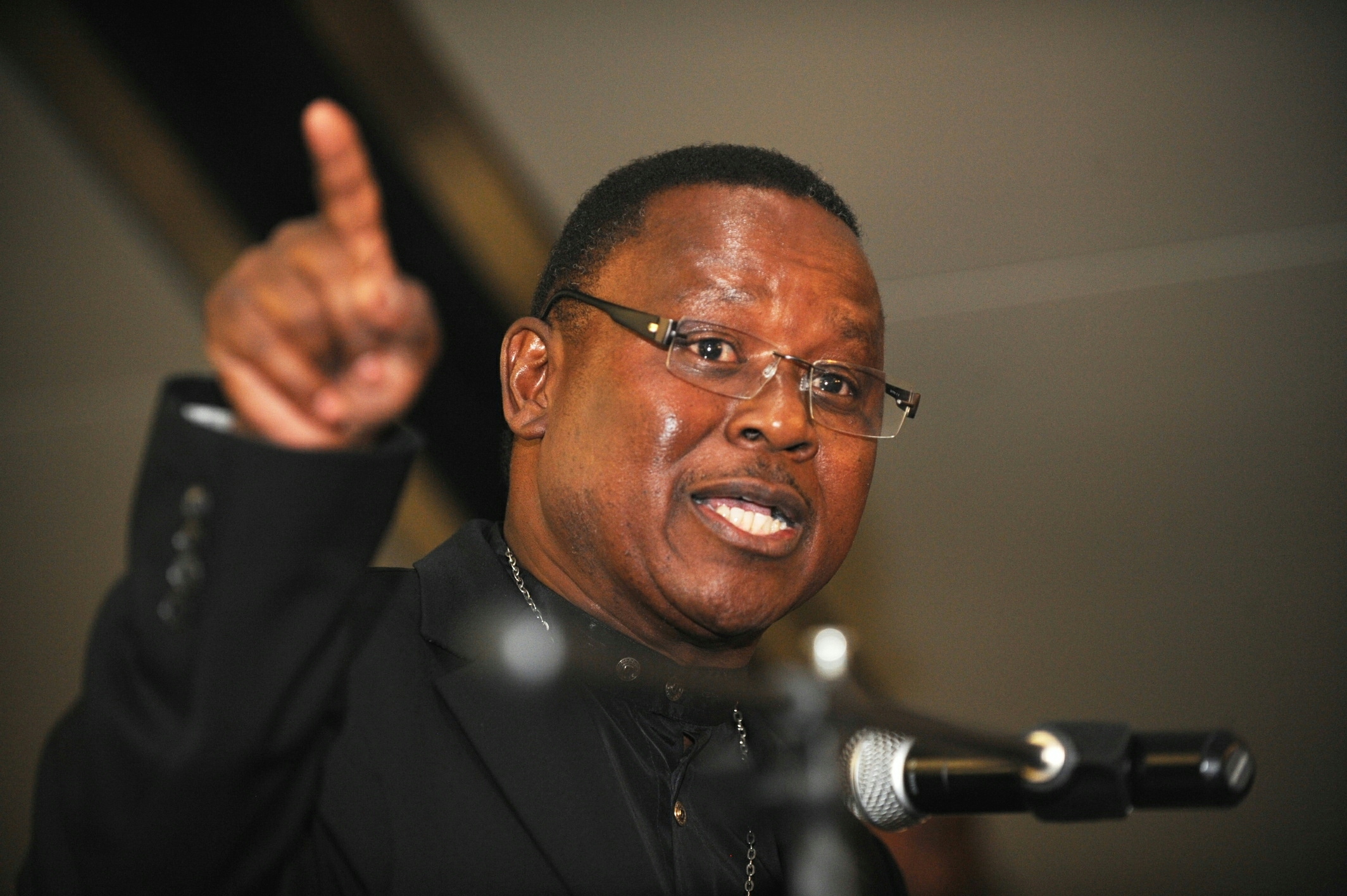 Reverend Frank Chikane at the launch of his book, Eight Days in September, in Johannesburg, South Africa, on 14 March 2012. (Photo: Gallo Images / Sunday World / Tsheko Kabasia)
Reverend Frank Chikane at the launch of his book, Eight Days in September, in Johannesburg, South Africa, on 14 March 2012. (Photo: Gallo Images / Sunday World / Tsheko Kabasia)
That the ANC has done very little to deal with its implication is not the commission’s fault. The new chairperson of the party’s Integrity Commission, Frank Chikane, lamented recently that all those implicated by the Zondo inquiry have not voluntarily come before the body.
Turkeys never vote for Christmas, so it’s unlikely that the ANC will deal fittingly with all the recommendations in its locus of control. And I wouldn’t bet on seeing former president Jacob Zuma or the former Cabinet minister Malusi Gigaba, the two most prominent politicians fingered by the Zondo Commission, in the dock any time soon.
The reason for this is that they often worked through the boards they appointed, or middle persons like Dudu Myeni in the case of Zuma. There is no crime called “State Capture” and Zondo recommended the introduction of a criminal statute for abuse of power precisely because there is a lacuna in the law.
But the duo’s political careers are dead. Zuma, for example, is now marching about as the chairperson of the South African National Civic Organisation, a moribund formation. Gigaba’s dreams of being president are eviscerated.
It would also be wrong to say that the National Prosecuting Authority (NPA) has done nothing. Its Investigating Directorate is investigating 34 State Capture-related cases. It has secured R7.18-billion in restraining orders – a small percentage of the fiscal damage of capture, but significant in real terms. It has worked with the South African Revenue Service to enrol eight tax cases, and 10 with the Asset Forfeiture Unit.
The directorate lost its first State Capture case, the Free State Nulane matter, in a damning judgment.
But now that it is being made a permanent structure and has better resources, thanks to a partnership with the private sector, better prosecutions are likely, says the NPA in its latest annual report.
Key NPA successes
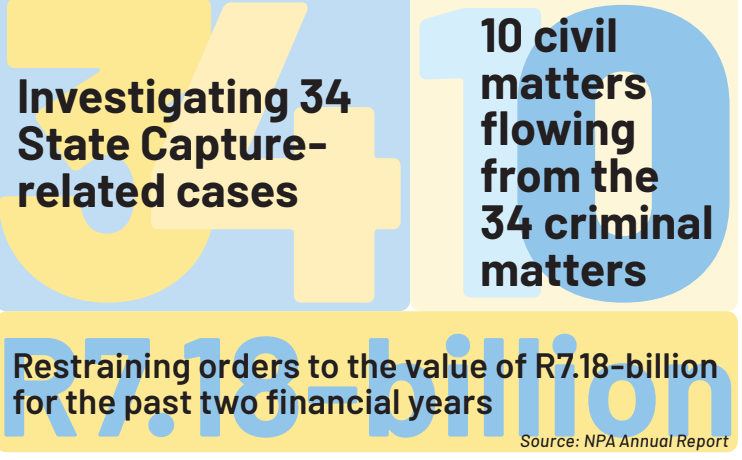
One year on, what is clear is that State Capture 2.0 is under way. Despite the Zondo Commission, the work of the NPA and the heightened consciousness of South Africans, the methods of patronage systems in the state and state-owned enterprises, using the procurement budgets that are now at more than R1-trillion, have intensified.
At Eskom, former CEO André de Ruyter said that he believed R1-billion was lost monthly to the extractive networks arranged around coal and fuel oil purchases, as well as the utility’s general procurement budget.
The murder of Babita Deokaran after she started questioning purchasing patterns at a single Gauteng hospital and the subsequent work of News24 reporter Jeff Wicks have shown the health system is another node.
The Digital Vibes spending on public health communication budgets that ensnared former health minister Zweli Mkhize is further proof. The Covid-19 emergency procurement scandal is calculated at R15-billion. We could go on.
What this first anniversary of the release of the Zondo Commission report shows is that, as Zondo said, his inquiry dealt only with the tip of the iceberg.
But what is clear now is that corruption is being revealed more quickly because investigative journalists, civil society and institutions like the Special Investigating Unit, the Auditor-General and the NPA understand State Capture and its methods. It’s a step in the fight against corruption, but only step one.
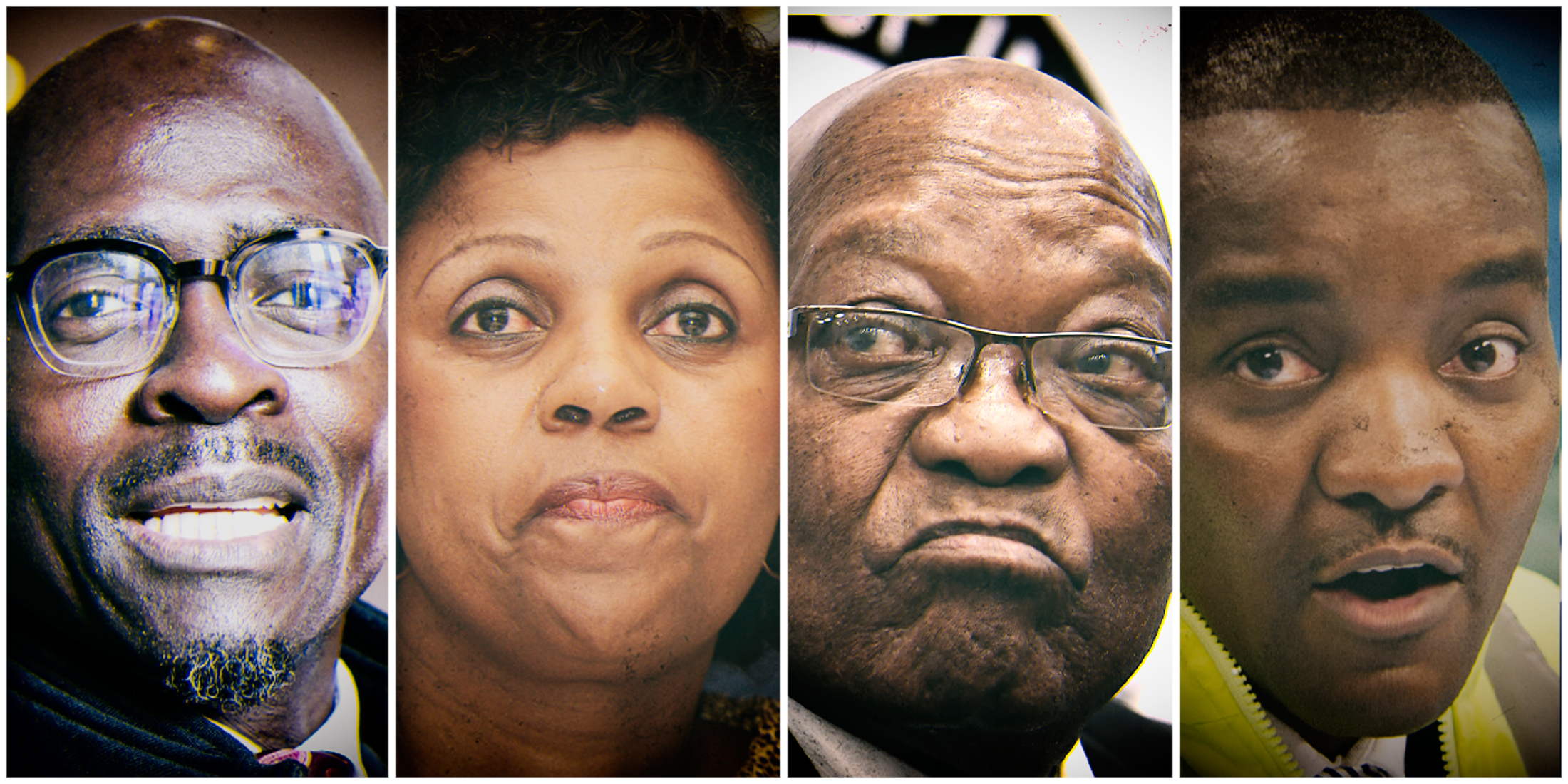 Malusi Gigaba. (Photo: Gallo Images / Sharon Seretlo) | Dudu Myeni. (Photo: Gallo Images / Veli Nhlapo) | Jacob Zuma. (Photo:Felix Dlangamandla / Gallo Images) | DM Mthimkhulu. (Photo: Deaan Vivier / Gallo Images)
Malusi Gigaba. (Photo: Gallo Images / Sharon Seretlo) | Dudu Myeni. (Photo: Gallo Images / Veli Nhlapo) | Jacob Zuma. (Photo:Felix Dlangamandla / Gallo Images) | DM Mthimkhulu. (Photo: Deaan Vivier / Gallo Images)
Key NPA highlights
The following corruption cases involving State Capture and municipal and government officials were enrolled or finalised in 2022/2023:
State v Y Moolla: KwaZulu-Natal (KZN) Division
The accused was sentenced in the Durban Specialised Commercial Crimes Court (SCCC) to 15 years’ imprisonment after he pleaded guilty to 3,799 counts of fraud and multiple counts of contravening the Banks Act, and the Financial Advisory and Intermediary Services Act.
State v SD Shabalala: KZN Division
The former head of KZN’s treasury was sentenced to 15 years’ imprisonment for fraud, corruption, money laundering and contravening the Public Finance Management Act.
State v Mlandu Mabija: Western Cape Division (WCD)
The accused was convicted in the SCCC on 290 fraud charges to the value of R374,363.32. He was sentenced to eight years’ imprisonment.
State v DM Mthimkhulu: Gauteng Local Division (GLD)
The former head of engineering services at the Passenger Rail Agency of South Africa (Prasa) was convicted on three counts of fraud by the Johannesburg SCCC sitting in Palm Ridge.
State v Booth and Welgemoed: Mpumalanga Division
The Nelspruit (Mpumalanga) SCCC convicted the accused and sentenced them to eight years’ imprisonment after they pleaded guilty to corruption.
State v Valero David and Others: GLD
The accused were convicted of fraud and collectively sentenced to 36 years’ imprisonment. (Source: NPA Annual Report)
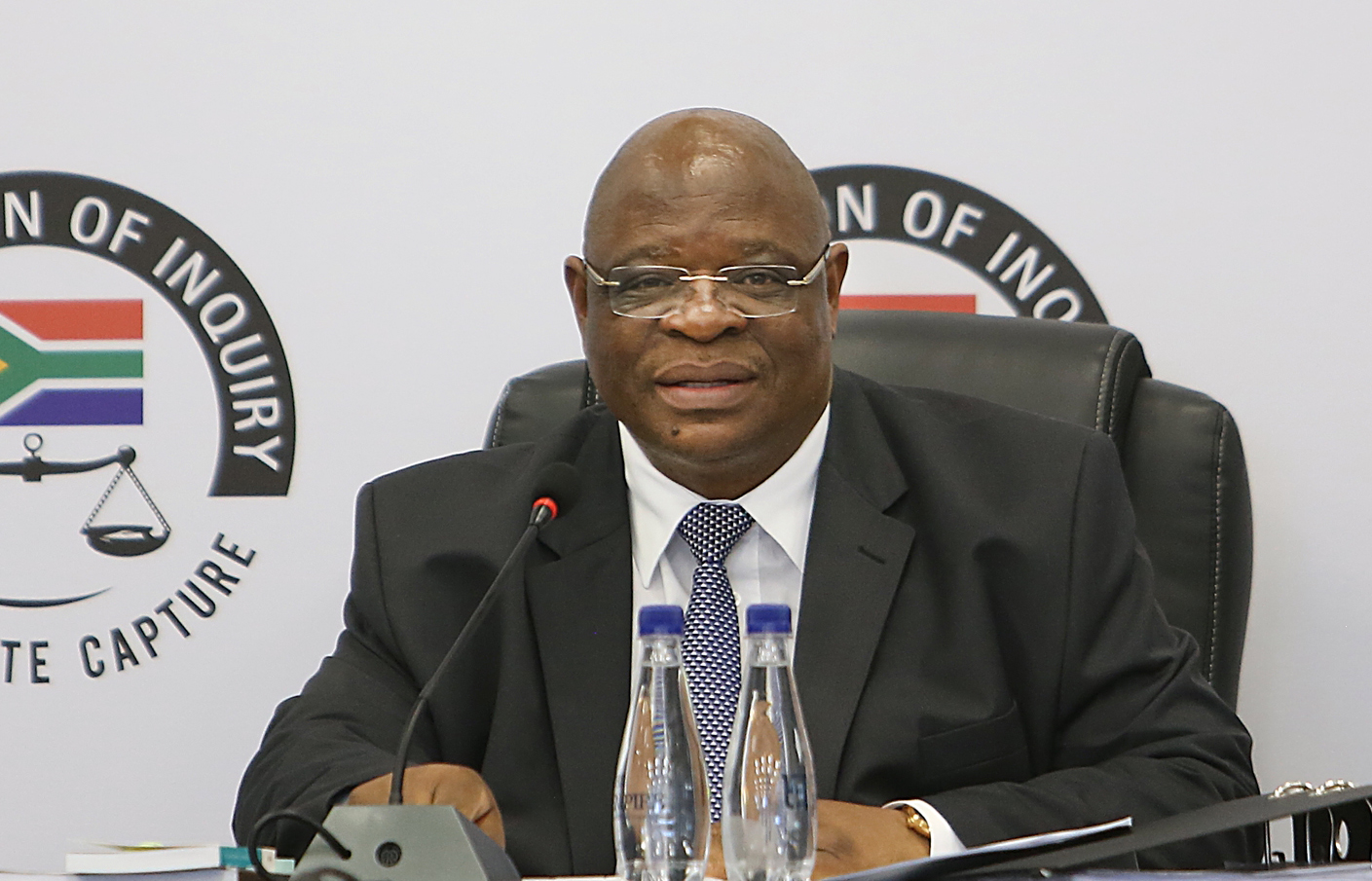 Deputy Chief Justice Raymond Zondo presides over the judicial commission of inquiry into State Capture on 20 August 2018 in Johannesburg, South Africa. (Photo: Gallo Images / Sowetan / Alon Skuy)
Deputy Chief Justice Raymond Zondo presides over the judicial commission of inquiry into State Capture on 20 August 2018 in Johannesburg, South Africa. (Photo: Gallo Images / Sowetan / Alon Skuy)
‘It’s up to the people now,’ says Judge Zondo
Chief Justice Raymond Zondo, who chaired the Commission of Inquiry into State Capture, has said South Africa needs leaders who are intolerant of corruption.
“The people must take their destiny in their hands and say ‘never, never and never again’,” he said at a Human Sciences Research Council (HSRC) colloquium to mark the first anniversary of the handover of the commission’s report to President Cyril Ramaphosa.
The question put to him: Has the capture of the state placed our democracy at risk? “An unequivocal yes,” he said. “I’ve seen nothing that has changed.”
Zondo highlighted sections of his report that found the National Assembly had stopped an earlier inquiry into State Capture after the release of former Public Protector Thuli Madonsela’s initial report. He said it was difficult for Parliament to be an authentic site of accountability until electoral reforms were passed to make political leaders accountable to their constituents and not only to party leaders.
Parliament was indignant at Zondo’s comments and said it was crucial it be afforded the “necessary space to fulfil its obligations”.
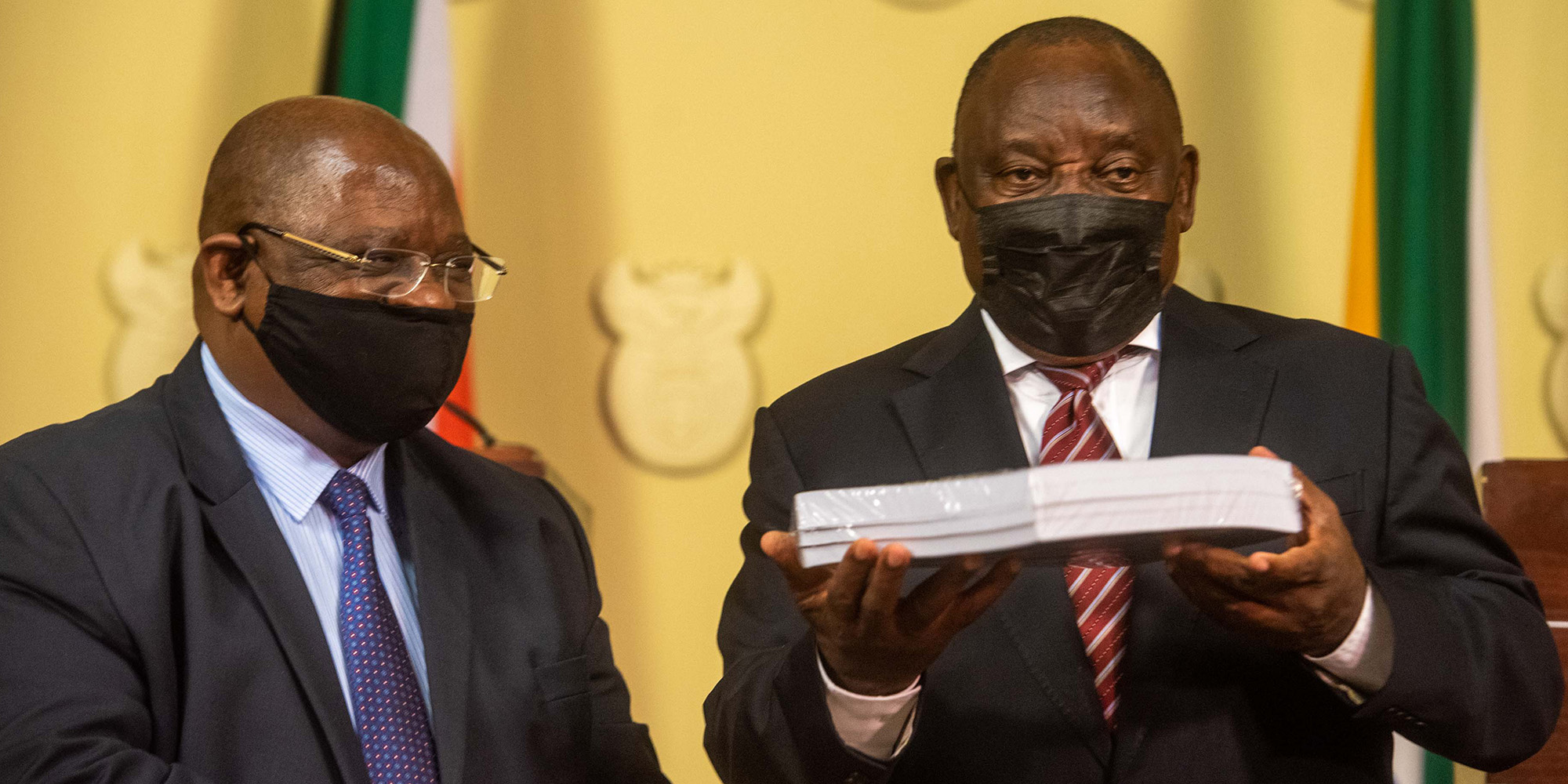 President Cyril Ramaphosa receives the first part of the report of the Judicial Commission of Inquiry into Allegations of State Capture from the commission’s chairperson, Chief Justice Raymond Zondo. (Photo: Alet Pretorius)
President Cyril Ramaphosa receives the first part of the report of the Judicial Commission of Inquiry into Allegations of State Capture from the commission’s chairperson, Chief Justice Raymond Zondo. (Photo: Alet Pretorius)
Zondo repeated his finding that South Africa needed a standing anti-corruption commission like a permanent version of the anti-graft inquiry he chaired for three years. Ramaphosa has appointed an advisory body to decide on this. He said such a permanent body would allow transparent investigations into corruption. He said his report, voluminous at 5,500 pages, had still only dealt with the tip of the iceberg of theft from the state.
“South Africa does not need leaders who are tolerant of corruption,” Zondo said.
An HSRC social attitudes survey found that 62% of a representative sample of South Africans believed that “quite a lot” of or “almost all” politicians were involved in corruption. Alarmingly, 49% reported that a government official had asked them or a close family member for a bribe or favour. About a third of the sample had moderate or high knowledge of State Capture whereas four in 10 had “no knowledge”.
“Equal shares of the public rated the commission poorly and favourably on evidence gathering in 2021 (the last year it sat in public hearings), but poor evaluations increased between 2021 and 2022,” said Ben Roberts and Ngqapeli Mchunu of the HSRC.
“Satisfaction with the commission’s performance seems to be associated with its effectiveness in tackling crime and corruption,” the researchers found.
Effectiveness tallied with prosecutions (or the need for “orange overalls” in everyday conversation), meaning that the Zondo Commission’s work has now been passed to the National Prosecuting Authority. (The latest account of its progress in State Capture cases is in the chart.)
Advocate Gary Pienaar of the HSRC audits the commission’s recommendations and notes progress in the following areas:
- Lifestyle audits have started;
- The National Framework Towards the Professionalisation of the Public Sector was tabled at Cabinet in October 2022;
- Several public administration laws are being changed regarding how public servants are employed and what their levels of accountability are;
- A prohibition on civil servants doing business with the state has been passed; and
- Parliament is planning a study tour to understand how to establish a committee to exercise oversight of the President and Presidency.
In other vital areas, there is no reportable progress yet. No politicians in the commission’s report have faced any consequences because a recommendation to create a statutory offence for abuse of power is not yet out of the starting blocks.
Zondo recommended that “… government give consideration to the creation of a statutory offence rendering it a criminal offence for any person vested with public power to abuse public power vested in that person by intentionally using that power otherwise than in good faith for a proper purpose”.
The judge said that the commission had located State Capture not in all three arms of the state but primarily in the abuse of power by the head of state (former president Jacob Zuma) to advance the interests of the Gupta family. He reminded the colloquium that “… where a president no longer makes decisions [in the interests of the people], it undermines the country and impacts democracy”. DM
This story first appeared in our weekly Daily Maverick 168 newspaper, which is available countrywide for R29.





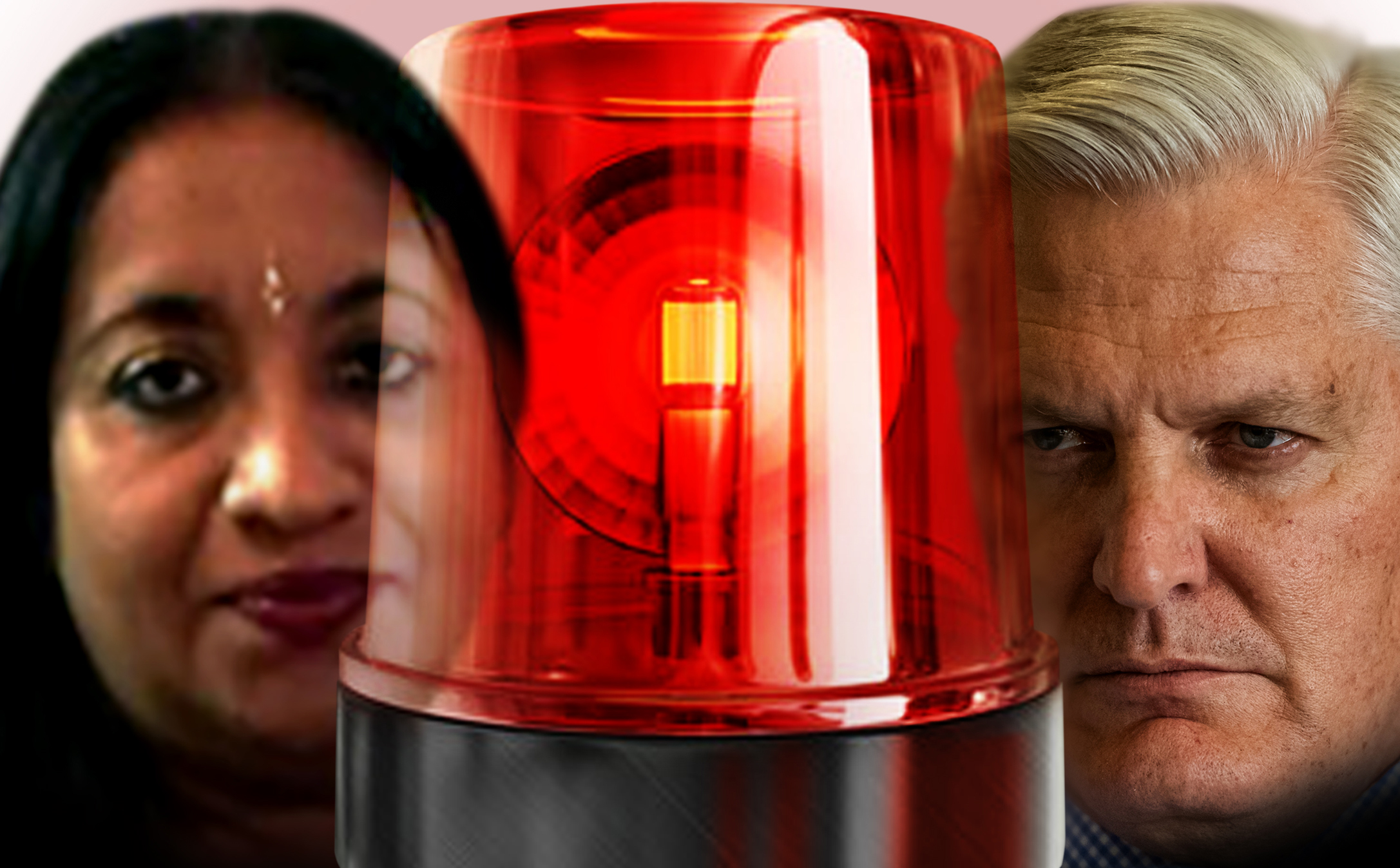 President Cyril Ramaphosa receives the first part of the report of the Judicial Commission of Inquiry into Allegations of State Capture from the Commission’s Chairperson, Chief Justice Raymond Zondo. (Photo: Alet Pretorius)
President Cyril Ramaphosa receives the first part of the report of the Judicial Commission of Inquiry into Allegations of State Capture from the Commission’s Chairperson, Chief Justice Raymond Zondo. (Photo: Alet Pretorius) 